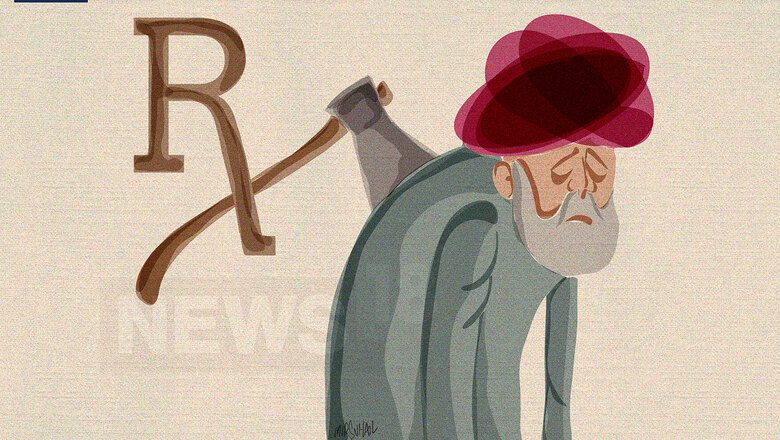
views
Churu/Jaipur/New Delhi: Over a dozen people were used as guinea pigs for a drug being developed by a pharmaceutical company at a private hospital in Rajasthan.
News18 met with 12 people from one village – Digaria —who were offered this potentially harmful drug this April. Three of them backed out on seeing the delirious state of those who had consumed the drug.
People from other villages in Rajasthan were also roped in for the drug trial, but they refused to be identified during their interactions with News18.
Those from Digaria, who are still suffering from the side-effects of this trial, told this to News18 -
a) Consent of none of them was sought before they were exposed to potentially harmful clinical drug trials.
b) None of these people even knew that they were being given yet-to-be-released drugs.
c) In several cases, they were told that the tablets they were being given would help digestion.
d) None of them were told about the possible side-effects and almost all of them are suffering from head-aches, upset stomachs, extreme lethargy and drowsiness, since taking the drug.
One of the recipients said he jotted down the name of the drug from the strips given to them, it was ‘Quetiapine’, which is an anti-psychotic drug used to treat mental conditions such as schizophrenia.
Doctors who News18 reached out to said that except stomach ache, all other symptoms like drowsiness, lethargy, head-ache, were congruent with the effects of anti-psychotic drugs when taken by a healthy person.
The pharmaceutical company in question – Glenmark Pharmaceuticals Ltd – denied having given Quetiapine for its clinical trials. A company representative claimed that they were instead conducting clinical trials for a drug meant for osteoarthritis. He also said that Glenmark had found "irregularities in the hospital records. We are therefore launching our own investigation in the case."
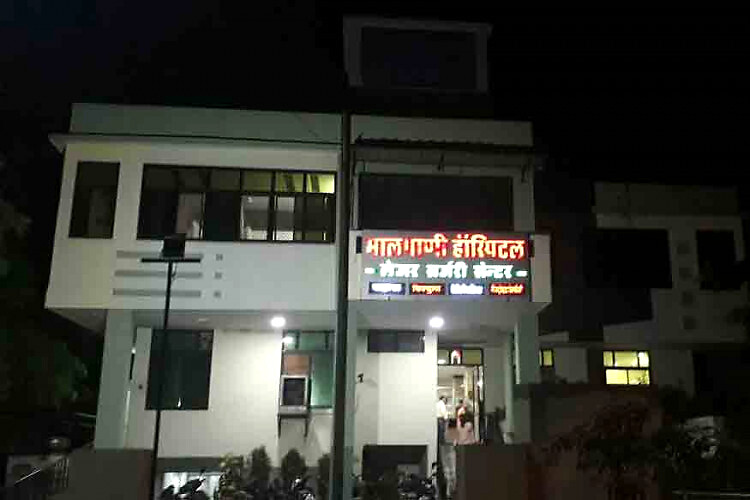
(Image: Rounak Kumar Gunjan/News18)
In its official statement to News18, Glenmark did not deny the possibility of Malpani hospital, whom it had entrusted with conducting clinical trials, having actually conducted the trials without seeking the consent of the volunteers.
(Scroll to the end of the story to read the complete statement by Glenmark.)
The hospital where these trials were conducted – Jaipur’s Malpani hospital – admitted to bringing people over for clinical trials, when contacted by News18, but claimed not to have administered the drug to any of the "volunteers" at all.
The people who were made part of these clinical trials told News18 that they were brought to the hospital with the promise of being offered a few days’ jobs at a medical camp where they needed to assist doctors and nurses.
The 12 people said that they did as told for the money – Rs 500 per day for people from village Digaria, Rs 1000 per day for those from Bharatpur – free food and alcohol.
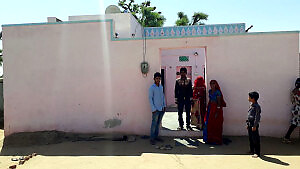
Multiple investigations have been launched into the episode, one by the state government which has constituted a three-member panel, and another by Central Drugs Standard Control Organisation (CDSCO).
The two investigating bodies are yet to submit their findings. However sources in CDSCO, on condition of anonymity, told News 18 that doctors in the hospital have admitted to discrepancies in the stocks of the drug in question. “Glenmark says they gave the hospital 36 tablets of GRC 27864, however, according to hospital’s record books there are only 33 tablets of the drug with them. Privately, the hospital officials admitted that they had indeed given three people this drug."
Rajasthan’s minister for health, Kali Charan Saraf, has called this “a serious matter" and promised strong action against the guilty.
What the Indian rule-book says about clinical trials
The Indian Council of Medical Research (ICMR) has laid down 12 guidelines for the conduct of clinical trials in India. The second guideline on this list explicitly states principles of voluntariness and talks of informed consent.
“Principles of voluntariness, informed consent, whereby research participants are fully apprised of the research and the impact and risk of such research; and whereby the research participants retain the right to abstain from further participation."
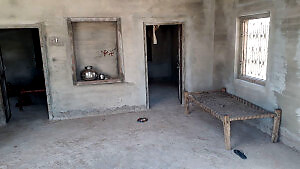
The guidelines also warn against “exploitation" of the volunteers to the clinical trials.
Other guidelines make it compulsory for the research to be carried out by professionally competent individuals in conditions medically suitable for experimentation. The guidelines are binding on all clinical trials going on anywhere in India.
Villagers speak out
To meet the recipients of GRC 27864, News18 travelled to Digaria village in district Churu, 12 of whose residents were made part of the clinical trials.
One of the people who took the drug and, like everyone who did is suffering the side-effects like acute head and body ache, is 25 year-old Sawarmal Meghwal. He works as a daily labour in the village and earns about Rs 300 per day.
“One of the villagers—Sher Singh—told us on the night of April 17 about a medical camp being set up in Jaipur for ten days. He said they will pay us Rs 500 per day and take care of our food and shelter. All we had to do was help the doctors and nurses in running the camp," he said.
Meghwal along with 11 other villagers left for Jaipur in a bus the next day. They were accommodated in the basement of the Malpani hospital. On the gates of the hospital’s basement, News18 saw ‘Clinical Trials’ written clearly in bold red.
Mularam Meghwal, a daily wager, who also boarded that bus to earn money said that lunch, followed by dinner and alcohol was served to them that day.
“Nobody asked us to work on the first day. They just asked us to rest. We were given food twice and alcohol at night."
At 2 pm on April 19, after having served them lunch, the middleman between the villagers and the hospital, Bhur Singh, asked the villagers to have a tablet each.
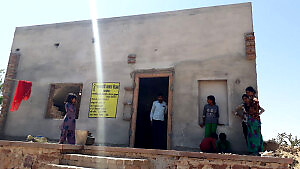
“He said the tablet will help us in digesting food. He also said that there will be three tablets given to us and if we have the third tablet, we will not be allowed to leave hospital premises for the next thirteen days," said Sonu Meghwal, another local of Digaria village.
The villagers who had the tables experienced acute headache, stomach ache and extreme drowsiness after having the tablet. However, there were some who opted not to have the medicine.
“We were out of the hospital for a stroll. When we returned we saw our fellow villagers in a state of intoxication. Bhur Singh asked us to have the same tablet but we refused to see their condition. Those who had the tablets slept the entire afternoon and night," said Lichhuram Meghwal, a resident of Digaria.
Though none of them had any clue about the medicine they were being given. It was out of sheer luck that, as Sonu Meghwal claims, he was the only from his group who could read English and read the name on the medicine strip before discarding it.

“They were taking out a tablet each and giving it to us. I was the second last in the queue so I was given the strip and asked to have one and give one to the man next to me. This is when I saw the name on the strip. At that time I did not know what it does," said Sonu, still ailing with stomach and headache.
Dangerous drugs
Lichhuram Meghwal was among the three who, not having taken the drug, was in senses to rush back to his village and bring back more villagers to “rescue" the remaining nine. One of the people Lichhuram Meghwal returned with clicked a photo of the strip. This photo was then shown to a private doctor in Jaipur to find what was ailing them.
The independent medical practitioner, speaking on condition of anonymity told News18, “The villagers were carrying the wrapper of Quetiapine. It is used to treat mental conditions such as schizophrenia, bipolar disorder, sudden episodes of mania or depression associated with bipolar disorder. Quetiapine is known as an anti-psychotic drug."
NK Malpani, the director of Malpani Hospital, admitted to not having informed or sought consent from the people he had enrolled for the clinical trials. “It is true that our volunteers had not told the villagers about the trial. The villagers had come here only for the money. However, we have a proper licence of drug trial. That day we were testing for osteoarthritis. The medicines were from Glenmark," he said.
Officials in the CDSCO investigative team told News18 that on being questioned, the hospital authorities admitted to giving drug supplied by Glenmark Pharmaceuticals Ltd to three patients.
“Malpani Hospital in Jaipur is one of the many sites that has recently initiated Phase II clinical trial for Glenmark's molecule GRC 27864 in patients with moderate osteoarthritis pain. Malpani Hospital has enrolled only 3 patients in this trial," said a spokesperson of Glenmark.
However, according to the officer from CDSCO who is part of the investigative team the three individuals named by Malpani had denied having taken any medication. “We went to these people for physical verification. They said they have not been to the hospital at all. At this time we’re not ruling out the possibility of being fed dummy names," said the official.
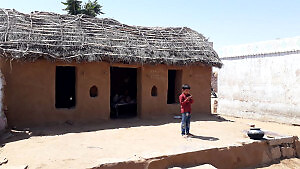
Despite strong assurance by the state health minister, no FIR has been registered in the case so far. The local police officer has refused to register FIR based on complaints by the Digaria villagers.
“An FIR can only be registered in Jaipur. We cannot take up the matter here as it involved multiple villages, like Bharatpur. Also, the incident did not occur here," said Prahlad Ray, circle inspector, Bidasar told News18.
When contacted by News18, the Churu Superintendent of police, S P Barhat and District Magistrate, Lalit Kumar Gupta, said they agreed with the circle inspector.
Churu MLA Khemaram Meghwal said he was unaware of the matter. “I got to know about this from you. I was busy last week. I haven’t got the time to read the newspapers," said Khemaram.
Here is the complete statement from Glenmark
"Glenmark has been conducting clinical trials in India and around the world since many years. Patient safety and regulatory compliance are of utmost importance to us. Malpani Hospital in Jaipur is one of the many sites that has recently initiated Phase ll clinical trial for Glenmark's molecule GRC 27864 in patients with moderate osteoarthritis pain. Malpani Hospital has enrolled only 3 patients in this trial and no adverse reactions have been reported so far. The Phase II study for GRC 27864 has been initiated at 23 sites so far across India and we have not faced any protocol-related issues at any of the sites. For the trial at Malpani Hospital, Glenmark has in place all the necessary regulatory approvals. However, in the wake of the event of media reports alleging irregularities at the hospital, the company has decided to immediately investigate the matter and suspend the clinical trial at the site. Glenmark will also fully support and cooperate with the regulatory authorities in any investigation on this trial. As a responsible organization, we will not compromise safety of patients."












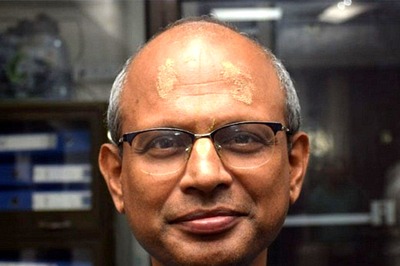




Comments
0 comment